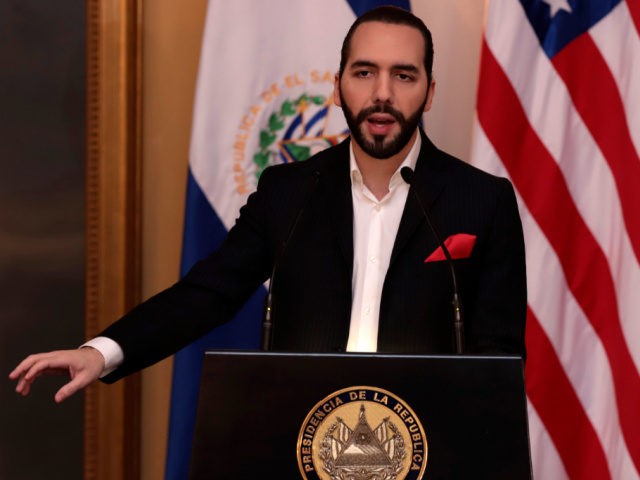Salvadoran President Nayib Bukele urged the U.S. this week not to finance opposition parties in El Salvador with American aid previously destined to support some state institutions, including in the small Central American country.
Some Democrat lawmakers, the Biden administration, and their U.S. mainstream media allies have demonized Bukele as an authoritarian, an allegation the Salvadoran president denied.
The attacks against Bukele came after his New Ideas party gained a supermajority in the Salvadoran legislature and used its new power to remove all five magistrates of the Supreme Court’s constitutional chamber early this month and the attorney general (AG), replacing them with others in line with his interests.
To the dismay of Democrats and, likely, President Joe Biden’s team, Bukele worked with the previous U.S. administration to limit migration from Central America. In mid-March, the Salvadoran president told Fox News the exodus of people heading north is terrible for the U.S. and worse for Latin America because it extracts the workforce vital to building the solid financial conditions that would keep them in their home country.
Last Friday, U.S. Agency for International Development (USAID) Commissioner Samantha Power announced the Biden administration was steering aid away from government institutions, including the National Civil Police, citing the ouster of the judges and AG.
Vice President Kamala Harris, charged by her boss with stemming the migrant surge of predominantly Central Americans at the U.S. southern border, has deemed street gang (mainly MS-13) violence as a “root cause” of migration to the U.S.
Nevertheless, the USAID chief is taking aid away from a public security institution in the country.
The 39-year-old millennial Salvadoran president who took office in 2019 ruled out efforts by his government to convince USAID to redirect the funds back to his government.
“We are not going to seek reorientation [of the funds],” he told reporters in Spanish Tuesday, later explaining:
We are not going to look for [USAID] to change … anything because we are not looking for a handout. We are looking to conduct business in the world and for our country to open up to the world, both commercially and touristically and politically, and not only to be relying on handouts. That is already a thing that we must leave behind in our minds:
Soon after his election, Bukele proclaimed in March 2019 that he was ready to “refuse” U.S. foreign aid “handouts” in favor of “jumpstarting commerce” between El Salvador and the United States.
“USAID’s money is not ours, it belongs to the American people who pay taxes, and we don’t have to tell them where to invest,” President Bukele told reporters Tuesday:
“Wherever USAID wants to give away its money, that is their prerogative, as long as it is not used to finance opposition political movements, because that is illegal,” Bukele warned:
“I think it would be good for them to invest in real [civil] organizations and not opposition groups,” the president added.
A recent poll by a non-governmental organization (NGO) revealed that nearly 95 percent of Salvadorans approve of how Bukele has managed the country during his two years in office.
He defended the legislative assembly’s move as constitutional under Article 186, which grants the legislative assembly, with the support of two-thirds of the lawmakers, the power to remove Magistrates of the Supreme Court “for specific causes previously established by the law.
The Salvadoran president believes the Salvadoran legislature met the constitutional burden required for removing the five judges, but his detractors do not.
“The people voted for this,” Bukele declared, referring to the removal of the judicial branch officials who allowed his party to tighten its grip over the country.
According to the poll, the legislative assembly dominated by Bukele’s New Ideas party and its recent decisions has an approval rating of more than 90 percent.
The Salvadoran president’s decisions are widely celebrated on social networks. In the streets of the small Central American country of 6.5 million, the protests against Bukele’s measures are the minority.
Bukele’s popularity does not necessarily mean his administration is immune to corruption. In a report leaked to Congress, the Biden State Department accused a member of the Salvadoran president’s cabinet and one of his former ministers of corruption. Bukele dismissed the report as a political witch hunt but failed to provide any evidence against the accusations.
If Bukele has nothing to fear, he should allow for an independent investigation into the claims.
In the U.S., the Senate can deny confirmation of an attorney general the sitting president nominates. Moreover, President Biden has established a commission to explore packing the U.S. Supreme Court with judges after his predecessor filled vacant seats with conservatives whom he believes will make it more difficult for him and other Democrat presidents to carry out their plans.

COMMENTS
Please let us know if you're having issues with commenting.